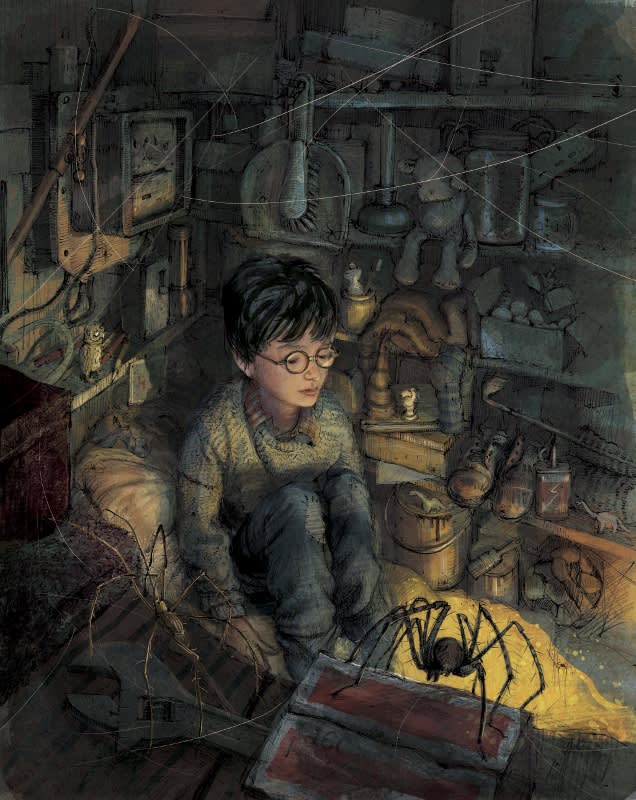
How’s your Latin? Unless you learned it at school (or you’re actually an ancient Roman), probably not great. It’s a dead language, technically speaking, but that term implies some sort of uselessness or irrelevance; in the Harry Potter series, however, nothing could be further from the truth. Latin is very much alive in all the books, adding its rich descriptiveness and magisterial tone to spells, names, places and more.
So even if you’ve never studied Latin before, read on to find out how it is weaved through the very fabric of Harry Potter, and you might find an interest for this classical language you never knew you had.
Why Latin?
Latin’s more than just a historical eccentricity – it’s the basis of what we call Romance languages (Spanish, French, Italian and others), lending its structure and words to the communications of a billion speakers around the world. It resonates through English too, with so many of our words coming directly from Latin – you might say it’s ubiquitous (from Latin ‘ubique’, meaning everywhere). With wizards being old-fashioned in nature, it’s not surprising that so many of their spells are rooted in a more archaic language.
Mythology
It’s not just the words that makes Latin so important in Harry Potter. It was the language of the Romans, who shared with the Ancient Greeks a vibrant mythology and belief in fantastic creatures. Centaurs, Basilisks, Manticores, Sphinxes, phoenixes… all appear in the Harry Potter series, and while they may have originated in Greek lore and been pinched by the Romans, the spread of the enormous Roman Empire through the Middle Ages meant they were equally associated with Latin.
Audentes Fortuna iuvat, ran a popular Latin proverb (‘fortune favours the bold’): one of the key motifs in classical mythology is the hero, and surely Harry Potter is the most heroic hero since Caesar crossed the Rubicon in 49 BC.

Characters
The etymology of Harry Potter characters is so detailed it could warrant a whole book in itself. Look deeper and you’ll find that many of the names have Latin influence, and studying them might even help us understand the characters themselves a bit better. Some are comparatively straightforward: ‘Severus’ means severe, ‘Lupin’ is wolf, ‘Albus’ is white; all are good descriptors of their holders.
Some are fun – ‘Ludo’ means ‘I play’, and of course Ludo Bagman is Head of the Department of Magical Games and Sports in the Ministry of Magic. ‘Silva’ means woodland, and Silvanus Kettleburn is a Hogwarts Care of Magical Creatures professor. ‘Bellatrix’ is the feminine form of warrior, and who’s more fighty than her?
And other names are more mysterious, inviting head-scratching contemplation: according to The Tales of Beedle the Bard, Ignotus Peverell was the original owner of the Invisibility Cloak, and ‘Ignotus’ can mean forgiven. What could that refer to?
Gods and goddesses
You know the Harry Potter series is full of powerful women, but did you know some of them are practically godly? The Romans were polytheistic, meaning they worshipped a range of gods and goddesses, some of whom might share their names with the teaching staff at a certain school of witchcraft and wizardry. Pomona is the Roman goddess of ‘fruitful abundance’; Pomona Sprout is Herbology professor. Minerva is goddess of wisdom, and Professor McGonagall had that in spades.
And there’s Quirinus (as in Quirrell), a Roman god of war – but it gets more intriguing. The god Janus is sometimes called Janus Quirinus; Janus is deity of doorways and openings, and is depicted as a man with two faces on either side of his head. Remind you of anyone?
In the student body, Luna is goddess of the moon, and lends her name to Luna Lovegood. ‘Luna’ is also the root of ‘lunatic’, as it was believed the moon induced erratic behaviour; she’s eccentric, certainly, although lunatic might be a bit unfair…
Spells and incantations
You probably know more Latin than you think – the Harry Potter series was a primer-by-stealth, sneaking in meanings without you even noticing. ‘Crucio’ translates as ‘I torture’, and that’s precisely what happens when witches and wizards say that word to cast the Cruciatus Curse. Accio means ‘I summon’: remember Harry mastering the Summoning Charm to fetch his Firebolt during the Triwizard Tournament? And when he swapped the covers of Advanced Potion-Making he used the ‘Diffindo’ incantation, meaning ‘I divide’, then ‘Reparo’ to put them back together. Lesson over!
The language of magic
Wherever you look, the Harry Potter books are loaded with Latin, from the Hogwarts motto ‘Draco dormiens nunquam titillandus’ (never tickle a sleeping dragon) to Knockturn Alley ( ‘nocturnus’ meaning night, apt for a pretty sinister place), and the Truth Potion Veritaserum (from ‘veritas’, truth). It really does merit another read of the series to see what you can uncover. Latin is the language of mysticism, and alchemy, and secrecy and legend: it’s the language of magic.
In her 2008 Harvard commencement speech, J.K. Rowling quoted Roman philosopher Seneca the Younger, saying: ‘As is a tale, so is life: not how long it is, but how good it is, is what matters.’ If all this has left you pining for more, Philosopher’s Stone and Chamber of Secrets have been published entirely in Latin – something to aim towards, maybe!

